 |
| Illustration photo: VGP |
In April 2025, many new policies will take effect, including policies related to labor management, wages, remuneration, and bonuses in state-owned enterprises; amending and supplementing regulations on policies to support tuition fees and living expenses for pedagogical students; and working regimes for teachers.
New regulations on labor management, wages, remuneration and bonuses in state-owned enterprises
The Government issued Decree No. 44/2025/ND-CP dated February 28, 2025 regulating the management of labor, wages, remuneration, and bonuses in state-owned enterprises. The Decree clearly stipulates the principles of labor, wage, remuneration, and bonus management.
Specifically, labor, wages, remuneration and bonuses in enterprises are determined in connection with tasks, labor productivity and production and business efficiency, in accordance with the industry and nature of the enterprise's operations, aiming to ensure the wage level in the market; implementing an appropriate wage mechanism for enterprises to attract and encourage high-tech human resources in high-tech fields prioritized for development by the State.
The State shall manage labor, wages, and bonuses for enterprises in which the State holds 100% of the charter capital by assigning tasks and responsibilities to the owner's representative agency and the owner's direct representative at the enterprise; for enterprises in which the State holds more than 50% of the charter capital or total voting shares, the owner's representative agency shall assign tasks and responsibilities to the representative of the State capital to participate, vote, and make decisions at meetings of the Board of Members, Board of Directors, or General Meeting of Shareholders.
Separate the salaries and remuneration of Board members and Supervisors from the salaries of the Executive Board.
The Decree stipulates that the salary fund of employees and the Executive Board is determined according to the following methods: Determining the salary fund through the average salary level; determining the salary fund through the stable salary unit price.
This method is only applicable to enterprises that have been in operation for at least the expected period of applying the stable wage unit price.
Abolish 11 decrees on labor management, wages and bonuses
This content is stipulated in Decree 44/2025/ND-CP of the Government on labor management, wages, remuneration, and bonuses in state-owned enterprises. Accordingly, Clause 1, Article 33 of Decree 44/2025/ND-CP stipulates the effective date as follows:
Decree 44/2025/ND-CP takes effect from April 15, 2025. The regimes prescribed in this Decree shall be implemented from January 1, 2025.
Clause 3 of this Article provides for the abolition of the following Decrees when Decree 44/2025/ND-CP comes into effect:
(1) Decree 51/2016/ND-CP regulating labor management, wages and bonuses for employees working in single-member limited liability companies in which the State holds 100% of the charter capital;
(2) Decree 52/2016/ND-CP stipulates salaries, remunerations, and bonuses for managers of single-member limited liability companies in which the State holds 100% of the charter capital;
(3) Decree 53/2016/ND-CP regulating labor, wages, remuneration, and bonuses for companies with State-controlled shares and capital contributions;
(4) Decree 21/2024/ND-CP amending Decree 51/2016/ND-CP regulating labor management, wages and bonuses for employees working in single-member limited liability companies with 100% charter capital held by the State and Decree 52/2016/ND-CP regulating wages, remuneration and bonuses for managers of single-member limited liability companies with 100% charter capital held by the State;
(5) Decree 20/2020/ND-CP on piloting labor, salary and bonus management for an economic group or state-owned corporation;
(6) Decree 87/2021/ND-CP on extending the implementation period and amending and supplementing an article of Decree 20/2020/ND-CP on piloting labor, salary and bonus management for an economic group or state-owned corporation;
(7) Decree 64/2023/ND-CP supplements Decree 87/2021/ND-CP on extending the implementation period and amending and supplementing Decree 20/2020/ND-CP on piloting labor, salary and bonus management for an economic group or state-owned corporation;
(8) Decree 121/2016/ND-CP on piloting labor and salary management for the Military Telecommunications Group in the period 2016 - 2020;
(9) Decree 74/2020/ND-CP amending Decree 121/2016/ND-CP on piloting labor and salary management for the Military Telecommunications Group in the 2016 - 2020 period;
(10) Decree 82/2021/ND-CP on extending the implementation period and amending Decree 121/2016/ND-CP as amended by Decree 74/2020/ND-CP on pilot implementation of labor and salary management for the Military Industry - Telecommunications Group;
(11) Decree 79/2024/ND-CP amends Decree 121/2016/ND-CP as amended by Decree 74/2020/ND-CP and Decree 82/2021/ND-CP on pilot implementation of labor and salary management for the Military Industry - Telecommunications Group.
Amending and supplementing regulations on policies to support tuition fees and living expenses for pedagogical students
The Government issued Decree No. 60/2025/ND-CP (Decree 60) dated March 3, 2025 amending and supplementing a number of articles of Decree No. 116/2020/ND-CP dated September 25, 2020 (Decree 116) regulating policies to support tuition fees and living expenses for pedagogical students.
Decree No. 60 was issued to overcome limitations and difficulties in the implementation of Decree No. 116, while continuing to inherit the results achieved in implementing support policies, attracting excellent and dedicated students to study and work, and contributing to the education sector.
Decree 60/2025/ND-CP amends and supplements Article 9 of Decree 116/2020/ND-CP on recovery of support funds.
Specifically, every year, based on the training and learning results of pedagogical students, teacher training institutions shall notify the list of pedagogical students who are entitled to policies and are in the training period but have transferred to another training major, voluntarily dropped out of school, failed to complete the training program, or have been disciplined and forced to drop out of school to the People's Committee of the province where the student is a permanent resident or the agency that assigns the task or places the order to notify the recovery of the funds that have been supported for pedagogical students.
For pedagogical students who are supported with funds in the form of budget allocation and are subject to reimbursement, before December 30 of each year, based on the Certificate of working time in the education sector of the pedagogical student, the People's Committee of the province where the student is a permanent resident shall review, monitor, guide, and issue a notice to recover the support funds so that the pedagogical student can fully pay back the amount to be reimbursed according to regulations.
For pedagogical students who are supported financially in the form of assignment or order and are required to reimburse the tuition and living expenses support fund, the agency assigning the assignment or order shall monitor, guide, and issue a notice to recover the support fund so that the pedagogical students can fully pay back the amount to be reimbursed according to regulations.
Within 30 days from the date of receipt of the notice from the competent authority, students who are eligible for reimbursement must contact the agency that issued the notice of recovery of the reimbursement to complete the procedures for reimbursement of the support funds.
The maximum period for performing the obligation to reimburse the support fund is 4 years, from the date the student teacher receives the notice of reimbursement.
Within the time limit for performing the obligation to reimburse the cost, the student must pay the reimbursed amount to the teacher training institution or the agency that placed the order or assigned the task (for students who are subject to the order or assigned the task) according to regulations.
In case the student is late in performing the refund obligation beyond the prescribed time limit, he/she shall be subject to the maximum interest rate applicable to demand deposits as prescribed by the State Bank of Vietnam for the late refund amount.
In case the State Bank does not prescribe the maximum interest rate applicable to demand deposits, the interest rate applicable to demand deposits of the Vietnam Joint Stock Commercial Bank for Industry and Trade at the time of performing the reimbursement obligation must be paid.
Clause 7, Article 1 of Decree 60/2025/ND-CP stipulates cases where pedagogical students are exempted from or have their tuition fee reimbursement amount removed, reduced or exempted: Pedagogical students will have their tuition fee reimbursement amount removed if they are subject to a labor capacity reduction of 61% or more or have passed away; pedagogical students are exempted from or have their tuition fee reimbursement amount reduced if they are subject to the tuition fee exemption or reduction policy according to Government regulations; the People's Committee of the province where the student is a permanent resident decides to exempt, reduce or remove the tuition fee reimbursement amount for pedagogical students who are subject to the policy.
The Decree takes effect from April 20, 2025 and applies starting from the 2025-2026 school year.
Principals and vice principals work 40 hours/week
Circular 05/2025/TT-BGDDT on teachers' working regime mentions the regulation that each teacher will not be allowed to hold more than 2 concurrent tasks in a school year.
Accordingly, in Article 3 of Circular 05/2025/TT-BGDDT, teachers' working hours are regulated based on the number of teaching periods in a school year and the average number of teaching periods per week.
The working hours of the principal and vice principal are 40 hours/week, including teaching hours. Principals need to assign tasks to teachers reasonably, ensuring transparency and fairness among teachers in the school.
If there is a case where teachers must be assigned to hold part-time positions, the principal must give priority to teachers who do not meet the average teaching hours per week.
However, an important regulation from April 22, 2025 is that each teacher is only allowed to hold a maximum of 2 concurrent tasks as prescribed in Articles 9, 10 and 11 of Circular 05/2025/TT-BGDDT. This is to avoid overloading teachers and at the same time help them have enough time to perform their main tasks well.
Working conditions include 6 types
The Ministry of Labor, War Invalids and Social Affairs (now the Ministry of Home Affairs) issued Circular 03/2025/TT-BLDTBXH regulating labor classification standards according to working conditions, effective from April 1, 2025.
Accordingly, working conditions include 6 types and are divided as follows:
- Occupations and jobs with working conditions classified as types I, II, III are occupations and jobs that are not heavy, non-toxic, or non-dangerous;
- Occupations and jobs with working conditions classified as type IV are arduous, toxic and dangerous;
- Occupations and jobs with working conditions classified as types V and VI are especially arduous, toxic and dangerous.
Working conditions are assessed and classified according to 3 methods:
- The evaluation and scoring method is implemented according to the following process: Identify the name of the occupation and job to be evaluated, determine the working conditions, and sample size. Then, evaluate the working conditions according to the system of indicators on working conditions.
- Statistical and empirical methods: Based on the characteristics of the specific working conditions of each occupation and job in the List of occupations, heavy, toxic, dangerous and especially heavy, toxic, dangerous jobs to determine the type of working conditions for the occupations and jobs being evaluated.
- Combined method: Combine evaluation and scoring methods with statistical methods, experience and consultation with industry managers, experts and scientists to synthesize results.
Regulations on electronic signatures and trusted services
The Government issued Decree No. 23/2025/ND-CP regulating electronic signatures and trusted services. This Decree regulates electronic signatures and trusted services, except for digital signatures used exclusively for public services and digital signature authentication services used exclusively for public services.
This Decree applies to agencies, organizations and individuals directly participating in or related to electronic signatures and trusted services.
According to Decree 23/2025/ND-CP, from April 10, digital signature certificates are classified as follows: Original digital signature certificate of a national electronic certification service provider is a digital signature certificate self-issued by a national electronic certification service provider corresponding to each type of trusted service.
A digital signature certificate of a trusted service provider is a digital signature certificate issued by a national electronic authentication service provider to a trusted service provider corresponding to each type of trusted service. A public digital signature certificate is a digital signature certificate issued by a public digital signature authentication service provider to a subscriber.
A specialized digital signature certificate is an electronic signature certificate issued by an agency or organization that creates specialized digital signatures. Also according to the decree, a public digital signature is a digital signature used in public activities, guaranteed by a public digital signature certificate and meeting all the requirements specified in Clause 3, Article 22 of the Law on Electronic Transactions.
The Decree clearly states that all agencies, organizations, and authorized persons of agencies and organizations as prescribed by law that are established and operate legally have the right to be granted and issue digital signature certificates.
Digital signature certificates issued to authorized persons of agencies and organizations must clearly state the title and name of the agency or organization of that person. Use digital signatures and digital signature certificates of agencies, organizations and authorized persons of agencies and organizations.
According to the Decree, digital signatures of agencies, organizations and authorized persons of agencies and organizations that are granted and issued digital signature certificates according to the above provisions may only be used to perform transactions and activities within the authority of the agency, organization and position granted and issued digital signature certificates.
Signing on behalf of or on behalf of an authorized person according to the provisions of law is performed by the person assigned or authorized to use his/her digital signature, understood based on the title of the digital signer recorded on the digital signature certificate.
The Decree takes effect from April 10, 2025.
According to VTV.vn
Source: https://baoquangngai.vn/xa-hoi/chinh-sach-moi/202504/nhieu-chinh-sach-moi-ve-lao-dong-tien-luong-co-hieu-luc-tu-thang-4-a734f20/


![[Photo] General Secretary concludes visit to Azerbaijan, departs for visit to Russian Federation](https://vphoto.vietnam.vn/thumb/1200x675/vietnam/resource/IMAGE/2025/5/8/7a135ad280314b66917ad278ce0e26fa)

![[Photo] President Luong Cuong presents the decision to appoint Deputy Head of the Office of the President](https://vphoto.vietnam.vn/thumb/1200x675/vietnam/resource/IMAGE/2025/5/8/501f8ee192f3476ab9f7579c57b423ad)
![[Photo] National Assembly Chairman Tran Thanh Man chairs the meeting of the Subcommittee on Documents of the First National Assembly Party Congress](https://vphoto.vietnam.vn/thumb/1200x675/vietnam/resource/IMAGE/2025/5/8/72b19a73d94a4affab411fd8c87f4f8d)
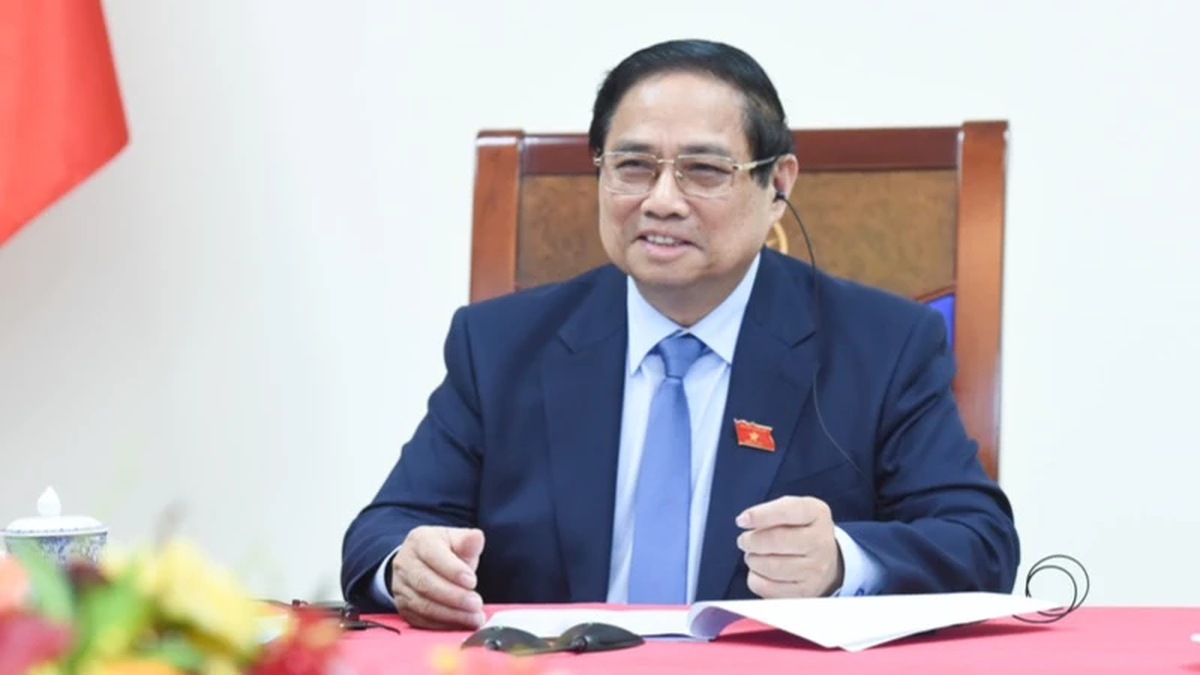
![[Photo] Prime Minister Pham Minh Chinh meets with the Policy Advisory Council on Private Economic Development](https://vphoto.vietnam.vn/thumb/1200x675/vietnam/resource/IMAGE/2025/5/8/387da60b85cc489ab2aed8442fc3b14a)
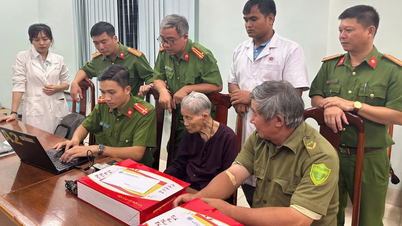


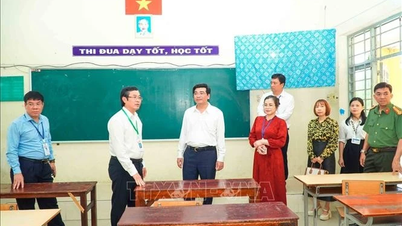






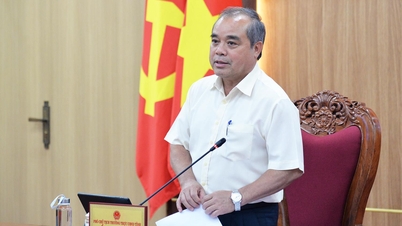






































![[Photo] Prime Minister Pham Minh Chinh talks on the phone with Singaporean Prime Minister Lawrence Wong](https://vphoto.vietnam.vn/thumb/402x226/vietnam/resource/IMAGE/2025/5/8/e2eab082d9bc4fc4a360b28fa0ab94de)











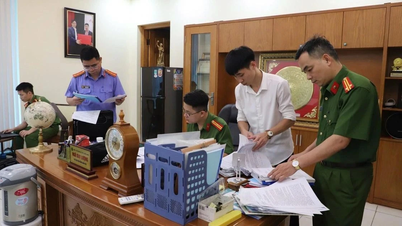

















Comment (0)